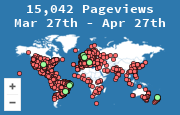150 YEARS ON CANCER CHALLENGING: WHAT DOES IT MEAN, WHERE ARE WE?
DOI:
https://doi.org/10.9789/2175-5361.2011.v3i3.2216-2221Palavras-chave:
Câncer doença não resolvida. Tumorigenesis mecanismos complexos e conflitantes. Tratamento e prevenção do câncer.Resumo
Abstract:
Introduction: Cancer comes from Latin language where it means crab. Onco comes from Greek language meaning mass, bulk or tumor. Tumors are classified on biological features as low-grade, intermediate or high-grade malignancy according to tumor cell differentiation. There have been about three hundred thousands of new cancer cases reported per year in Brazil. Tumorigenesis mechanisms, complexity and conflicts: Cancer has been considered a genetic disease caused by mutations in genes governing cell growth or chromosomal events as amplifications, deletions, inversions or translocations. Single nucleotide polymorphisms (SNPs) have been considered associated with cancer. It has been identified 1.42 million polymorphisms in the human genome. Epigenetic gene modulation may be a key mechanism in cancer development and metastasis. Chromatin-histone complex may be modified by phosphorylation, acetylation, methylation and/or ADP-ribosylation. MicroRNAs may be incorporated in mRNA targets and influence several biological processes as development, differentiation and apoptosis. Apoptosis is a way cells undergo programm deaths by activation of extrinsic cell surface death-mediating receptor, activation of mitochondrial mediated intrinsic pathway or non-apoptotic forms of cell death. In cancer there seems be failure, loss or absence of forms of cell death and overactivation of kinase growth factor receptors. Treatment and Prevention: Surgery is the better method to cure patients with solid tumors confined to local disease. Ionizing radiation may be administered as an isolated local form of cure, but also to extend limits of a treated region. Prevention depends on educational strategies, chemopreventive agents or early diagnosis for solid tumors. Advanced forms of cancer presentation are rarely cured and depend on combination of surgery, irradiation, chemotherapy and biological agents. Conclusion: At 150 years on cancer challenging, we do not know what it does really mean, nor even cure, effective treatment or prevention has been achieved. Descriptors: Cancer a non solved problem. Tumorigenesis complex and conflicts mechanisms. Cancer treatment and prevention.
Downloads
Downloads
Publicado
Como Citar
Edição
Seção
Licença
TERMO DE TRANSFERÊNCIA DE DIREITOS AUTORAIS
Transfiro os direitos autorais deste artigo para a Revista de Pesquisa Cuidado é Fundamental - Online - RPCF, assim que ele for aceito para a devida publicação eletrônica. Os direitos de autor incluem o direito de reproduzir na íntegra ou em parte por qualquer meio, distribuir o referido artigo, incluindo figuras, fotografias, bem como as eventuais traduções. O autor pode ainda, imprimir e distribuir cópias do seu artigo, desde que mencione que os direitos pertencem a RPCF. Declaro que este manuscrito é original, não tendo sido submetido à publicação, na íntegra ou em partes para outros periódicos online ou não, assim cmmo em Anais de eventos científicos ou capítulos de livros.





























